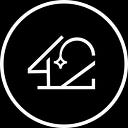Every expert in every field had to start somewhere. That somewhere is the beginning. Think about the skills you possess and recollect the moment you chose to learn that skill. It can be any skill, not necessarily a professional one. Think about the first time you went skiing, played a musical instrument, or got behind the wheel of a car. It is crucial to remember that people who are experts today were once beginners. They required help or tips from other people during their learning process. If you would like to learn how to code but need a piece of advice, you have come to the right place.
Tips for coding websites
Before you begin learning PHP, HTML, CSS, and JavaScript, check out our tips.
Choose the programming language
In addition to the programming languages mentioned above, Python, Java, SQL, and more are also included. Depending on the programming language, you will require different sets of skills. For those who are interested in website development, HTML, CSS, and JavaScript are a good place to start. If you choose the right programming languages to learn, you will save time and effort. Also, make sure to learn them in the correct order. For example, do not learn CSS before learning HTML because CSS builds on HTML.
Focus on one task at a time
As you become more and more proficient in coding, you might be tempted to go in different directions. However, this could negatively affect you in the long run. Choose a task, or pick a language, and approach it with all you have got. For instance, you are working on front-end code for a website, complete it before proceeding to anything that requires back-end code.
Moreover, the task you pick should not be anything high-level from the start. Start small and work your way up. You can fall into the trap where you start a project too far ahead. Do not try to accomplish task four on your coding to-do list before completing points one through three. Going from coding headings in HTML to mouse movements in JavaScript will not take place overnight, but with time you will get there.
Ask for help
Even the most experienced coders ask for help at some point. If you work together with other developers, learn from them in the area of their expertise. Often when you are stuck, the problem can be easily solved by another pair of eyes or a new perspective on the subject. People tend to learn faster when they have mentors and peer feedback. Take advantage of others as a resource, whether in-person or online. Also, do not hesitate to provide help to others when it is required.
Be agile
There is one thing for certain — technology is always evolving. When that happens, the language of technology changes along with it. All technology undergoes these changes. Back in the day, tapes were the best way to play music, VCRs were the best way to watch movies, and flip phones were convenient to text on. That is no longer the case. There will be a day when programmers no longer use Ruby, because something new has been developed to replace it. As a programmer, you will never stop learning. Whether these are new codebases or processes, you need to be agile, grasp new changes, and be ready for new ideas if you strive to keep up.
Do not be afraid to fail
Programmers, just like other people, fail and fail often. If every piece of code ran smoothly without problems and no websites required to be updated, learning how to code would become useless. It may happen that the code you have written is a bit off or does not work at all. Moreover, you will learn from your mistakes.
Conclusion
Learning how to code is not that easy, but these tips will help you prepare for everything that lies ahead. You will make mistakes and encounter roadblocks, just like anything you learn for the first time. In the end, however, you will be happy you learned the ins and outs of coding.
